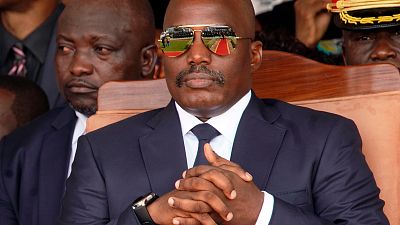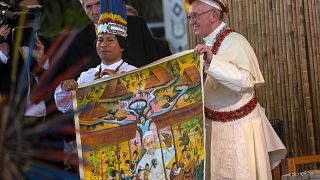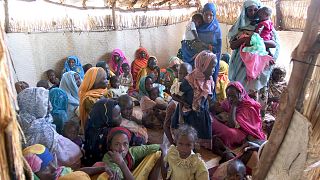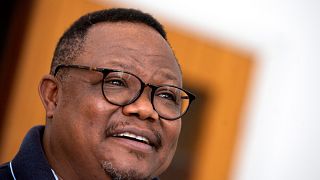Joseph Kabila
The Democratic Republic of Congo (DRC) is once again in the spotlight following the unexpected return of former president Joseph Kabila. What might have seemed like a routine political appearance has sparked intense debate, especially given the location of his reemergence, the conflict-ridden eastern region of the country.
Kabila chose to resurface in Eastern Congo, specifically near Goma, a region plagued by violent clashes between government forces and the M23 rebel group.
The M23 is widely believed to receive support from neighboring Rwanda, and it has been accused of committing serious human rights violations, including killings and sexual violence.
Kabila’s presence in this tense area and his controversial statement, urging South Africa not to support military efforts against the M23, raised eyebrows. For many Congolese citizens and political analysts, the move is seen as more than symbolic. Some believe Kabila is trying to legitimize the rebellion politically or even position himself as a power broker between warring factions.
Though Kabila officially stepped down in 2019, he never truly exited the political stage. As a senator for life, he retained both legal immunity and significant political influence. His previous coalition with President Félix Tshisekedi eventually collapsed, leading to growing animosity between the two camps.
Now, the Congolese government has suspended all activities of Kabila’s party, the People's Party for Reconstruction and Democracy (PPRD), accusing it of complicity in efforts to destabilize the country. Calls for his prosecution under charges of high treason have grown louder — a charge enshrined in the Congolese constitution for those who support or organize armed rebellion against the state.
Kabila’s return highlights a deeper issue within the DRC’s political landscape: the longstanding link between military force and political power. From the AFDL to the RCD, from CNDP to M23, many political leaders have risen through armed movements. For some, Kabila’s actions signify the final chapter of a deeply flawed political era, the so-called Third Republic, born out of post-war power-sharing deals and widespread impunity.
Kabila's long-expected return is seen as controversial, with some analysts saying his presence in Goma could worsen tensions between the rebels and the Congolese government, especially amid ongoing efforts to negotiate a ceasefire.
Representatives of Congo’s government and M23 rebels met in Qatar earlier this month as the Gulf Arab state leads renewed efforts to get both parties to return to dialogue and recommit themselves to a peace deal they each accuse the other of violating.
Christian Moleka, a political scientist at the Congolese think tank Dypol, said it was likely to have a “detonating effect on Congolese politics,” and strengthen the accusations by “those who believe that there is a connection between him and the M23 rebellion.”
Congolese President Felix Tshisekedi last year accused Kabila of backing the rebels and “preparing an insurrection” with them, a claim Kabila denies.
Kabila led Congo from 2011 to 2019, taking office at the age of 29 and extending his mandate by delaying elections for two years after his term was ended in 2017. His father, former President Laurent Kabila, was assassinated in 2001.
After leaving Congo, Kabila lived in South Africa and other African countries.
To truly move forward, analysts argue, the DRC must break the cycle where wielding arms is seen as a legitimate path to governance. That means not just punishing today’s actors but critically re-examining the legacy of past alliances.
Kabila’s political comeback has triggered a national reckoning. Key questions now confront the Congolese people and their leaders.
It now remains to be seen if the former head of state will openly associate with rebels without consequences.
The coming months will be decisive. But one thing is clear: the Congolese people are increasingly united in their demand for justice, sovereignty, and a break from a violent political past that refuses to fade.













Go to video
M23 and Congolese government agree to halt fighting, work towards peace
Go to video
Paris concert shines light on Congo's 'silent' war
Go to video
Goma joins global mourning for Pope Francis
Go to video
DRC: Goma Christians celebrate Easter under rebel rule
Go to video
Congo suspends Kabila's political party over rebel 'ties'
Go to video
Goma reacts to return of Kabila from exile